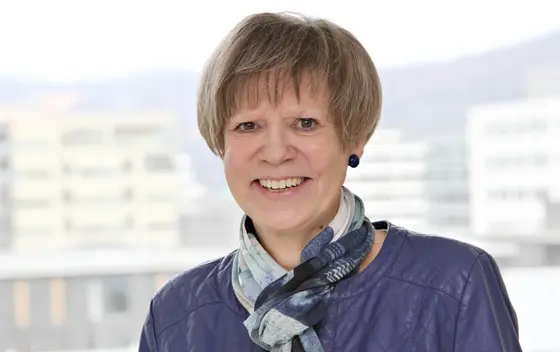In order to understand how normal human skin develops and what mistakes during this process can lead to skin cancer, Petra Boukamp developed three-dimensional models of human organs. Boukamp succeeded in getting the cells to organize themselves independently into layers in the Petri dish. These organ models are reproducible; they imitate conditions in human skin very closely and have a lifetime of up to six months.
Scientists are using these 3D organ models to examine how epidermal stem cells secure the skin's life-long capacity to regenerate and whether and how UV radiation and other environmental factors cause the skin to age.
When skin cancer cells in different stages of malignancy are added to this culture model, the researchers can study the interactions of the cancer cells with their environment or examine mechanisms that account for the invasive capacity of tumor cells. From these 3D-models, scientists have also developed a model for studying the effectiveness of modern anticancer drugs as well as side effects and resistance mechanisms.
In addition, Boukamp's research has also made seminal contributions to unraveling the role of chromosome ends (telomeres) and the so-called “immortality enzyme“ telomerase in normal cells as well as in skin cells that have turned cancerous.
Petra Boukamp studied biology at Heidelberg University. She earned a PhD at the University of Kaiserslautern and attained her qualification to give lectures ('Habilitation') at the University of Heidelberg. Since 1972, she has worked at the German Cancer Research Center (Deutsches Krebsforschungszentrum, DKFZ) in Heidelberg, first as a technical assistant and subsequently as a research assistant. Following several research experiences at the University of Irvine, California, she first became a research group leader and then, from 2001 until 2015, head of DKFZ's Division of Genetics of Skin Carcinogenesis. Presently she is finalizing work at the DKFZ and at the same time working as a team leader at the Leibniz Institute for Environmental Medicine in Düsseldorf.
The German Cancer Award, sponsored by the German Cancer Society (Deutsche Krebsgesellschaft), is one of the most prestigious distinctions in cancer medicine in Germany. The award is presented annually in equal parts for excellent research in experimental basic research, in translational research and in tumor diagnostics and treatment. Each category comprises €7.500.
Along with Petra Boukamp, the second award-winner in the category “Experimental Cancer Research“ was Martin Lipp from the Max Delbrück Center in Berlin. This year's award in the category “Clinical Cancer Research“ went to Michael Hallek, University of Cologne. The award-winner in the category “Translational Cancer Research“ was Guido Reifenberger from Düsseldorf University and the German Center Consortium (DKTK).
The awards were presented on March 1 during the 19th AEK Cancer Congress of the German Cancer Society.
An image of the award-winner is available for download at:
Boukamp.jpg
Note on use of images related to press releases
Use is free of charge. The German Cancer Research Center (Deutsches Krebsforschungszentrum, DKFZ) permits one-time use in the context of reporting about the topic covered in the press release. Images have to be cited as follows: “Source: Jutta Jung/DKFZ“.
Distribution of images to third parties is not permitted unless prior consent has been obtained from DKFZ's Press Office (phone: ++49-(0)6221 42 2854, E-mail: presse@dkfz.de). Any commercial use is prohibited.
